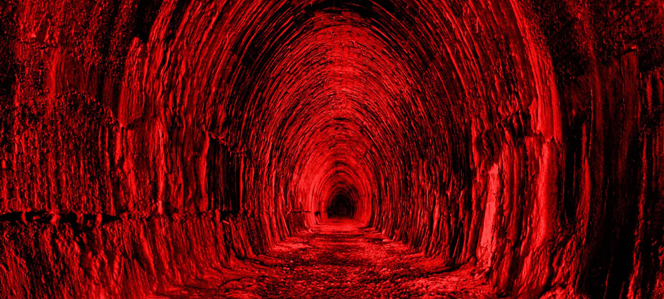An internet controversy is percolating around a soon-to-be-published book by well-known evangelical preacher Rob Bell. In this text, Love Wins: A Book About Heaven, Hell, and the Fate of Every Person Who Ever Lived, Bell apparently advocates the “universalist” position on salvation, according to which everyone in the end is saved and that Hell, accordingly, is empty. Many of his evangelical co-religionists are arguing that this doctrine runs counter to classical biblical Christianity and is designed to appeal to a trendy post-modern audience for whom the only unforgiveable sin is to be “exclusive.” This dust-up over Hell made the main page of the CNN website the other day and has prompted tens of thousands of responses and questions. Obviously Hell is still (forgive the pun) a burning question among both believers and non-believers.
Of course, there is nothing new about this controversy. It has raged on and off for almost the whole of Christian history. Though many find this distasteful even to contemplate, the Biblical figure who speaks most often of Hell and damnation is none other than Jesus himself. Time and again in the Gospels, Jesus warns about “Gehenna” and its everlasting fire; he also tells the parable of Dives and Lazarus in which the rich man is forever separated from the bosom of Abraham; and, in Matthew 25, he warns that those who neglect the needs of the poor will go off “to eternal punishment.”
In the third century, Origen of Alexandria, one of the most remarkable and influential theologians in the entire tradition, formulated a teaching he termed apokatastasis (restoration). According to this doctrine, all sinners—and indeed all of the fallen angels, including Satan himself—would be, through Christ’s grace, brought to salvation in the end. There might be hellfire, Origen thought, but it cannot be everlasting, for if it were, sin would prove more powerful than grace. Well, the official church reacted against Origen’s universalism, for she saw it as insufficiently respectful of freedom, both human and angelic. If God’s grace is simply irresistible, then the real freedom to reject God’s love appears compromised.
Now in the wake of this condemnation, other theologians moved practically to the other extreme. St. Augustine, fifth century bishop of Hippo, held that original sin had produced a massa damnata (a damned mass) of human beings, out of which God, in his inscrutable grace, has deigned to pick a few privileged souls. Thus, Augustine clearly believed that the vast majority of the human race would be damned to Hell. And though it makes me uncomfortable to admit it, my hero, St. Thomas Aquinas, followed Augustine in holding that a very large number of people are Hell-bound; he even taught that among the pleasures that the saints in heaven enjoy is the contemplation of the suffering of the damned!
In the twentieth century, the Protestant theologian Karl Barth moved back in Origen’s direction and articulated a more or less universalist position on salvation. He maintained that the cross of Jesus had saved the world and that the church’s task was to announce this joyful truth to everyone. The Catholic theologian Hans Urs von Balthasar was a friend of Barth’s and a fellow Swiss, and he presented a somewhat Barthian teaching on this score, though he pulled back from complete universalism. Balthasar argued that, given what God has accomplished in Christ, we may reasonably hope that all people will be saved. The condemnation of apokatastasis compelled him to draw back from saying that we know all will be saved, but his keen sensitivity to the dramatic power of the cross convinced him that we may entertain the lively and realistic hope that all people will eventually be drawn into the divine love.
My own conviction is that Balthasar has this more or less right. Catholic doctrine is that Hell exists, but yet the Church has never claimed to know if any human being is actually in Hell. When the Church says that Hell exists, it means that the definitive rejection of God’s love is a real possibility. “Hell” or “Gehenna” are spatial metaphors for the lonely and sad condition of having definitively refused the offer of the divine life. But is there anyone in this state of being? We don’t know for sure. We are in fact permitted to hope and to pray that all people will finally surrender to the alluring beauty of God’s grace.
Think of God’s life as a party to which everyone is invited, and think of Hell as the sullen corner into which someone who resolutely refuses to join the fun has sadly slunk. What this image helps us to understand is that language which suggests that God “sends” people to Hell is misleading. As C.S. Lewis put it so memorably: the door that closes one into Hell (if there is anyone there) is locked from the inside not from the outside. The existence of Hell as a real possibility is a corollary of two more fundamental convictions, namely, that God is love and that human beings are free. The divine love, freely rejected, results in suffering. And yet, we may, indeed we should, hope that God’s grace will, in the end, wear down the even the most recalcitrant sinner.
